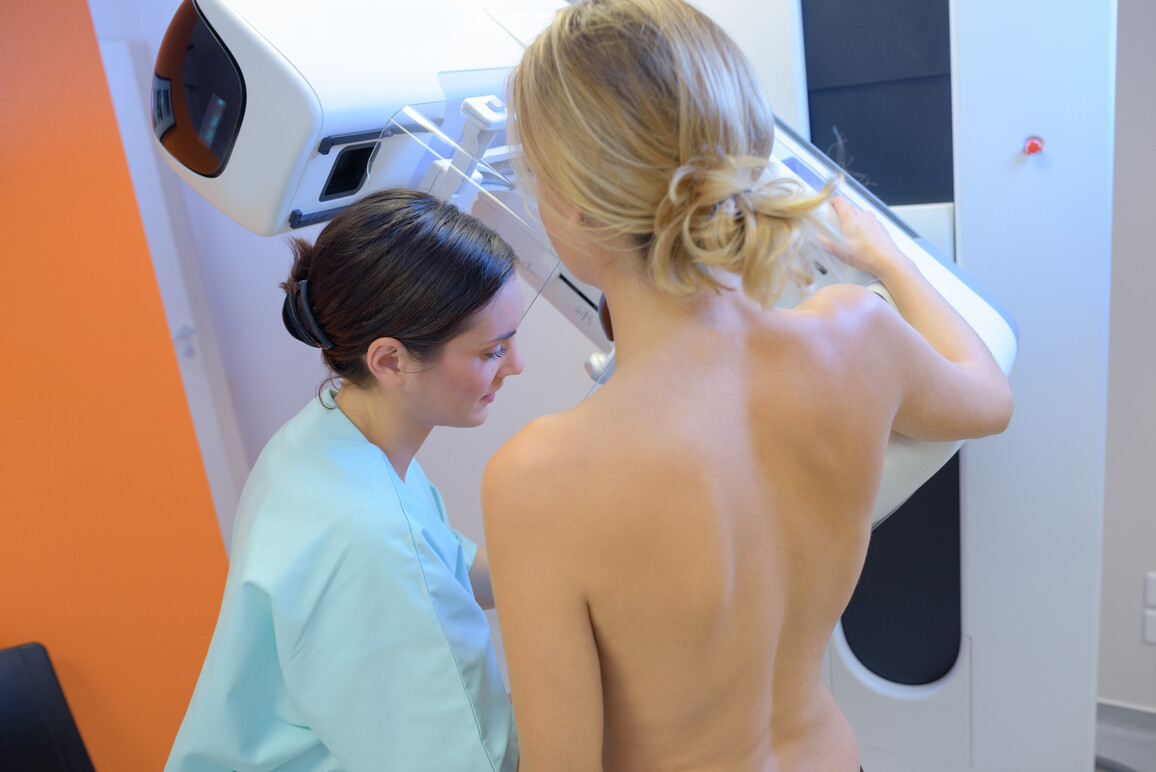LeibnizAILab develops an AI solution for breast cancer : Date: , Theme: International Future Labs
Chemotherapy or operation? Doctors have to choose the best possible treatment for breast cancer patients. But what is it? The AI programme developed by the LeibnizAILab is designed to help them answer this question.
In the summer of 2020, researchers at the LeibnizAILab moved into their new offices in the centre of Hannover. Here, they worked to develop AI models for personalized medicine. These models help doctors to correctly diagnose a disease or accurately predict how it will progress.
“We want to develop a digital tool, which makes predictions that are not only right for the individual patient, but which are also reliable and easy to interpret,” explains Dr Megha Khosla, coordinator of the LeibnizAILab until February 2022.
She gives an example to explain her point: “If I show the machine a picture of a cat, it needs to reliably recognize that it’s a cat, even if I change the colour of the cat’s eyes.”
In addition to this, doctors should also be able to understand why the programme has made a certain prediction or diagnosis. Dr Cameron Pierson and Dr Zhao Ren have been responsible for coordinating the lab since March 2022.
Breast cancer as a use case – or the tree of answers
The researchers at the LeibnizAILab are using breast cancer as a practical example to tangibly show what AI can do. They are working together with medical practitioners from the Hannover Medical School in the Hannover Breast Cancer Network project. Their aim is to identify factors that affect the success of treatment in breast cancer patients. As part of this, they are evaluating data from 5,000 patients. In the first step, data is compiled about the patient’s medical history and that of their families, e.g. tumour properties, treatment data, follow-up examinations and survival rates, genetic information or socioeconomic data. The researchers are particularly interested in the relationship between socioeconomic aspects such as education level or migration background and the success of a certain form of treatment.
Next, the AI programme analyses various different treatment options, automatically evaluating which treatment is the best choice for a specific patient. This enables doctors to provide targeted and personalized treatment and answers the question of whether this specific patient would have better chances of success with a neoadjuvant treatment (non-operative treatment such as chemotherapy) or with an operation.
What is special here is that the LeibnizAI team use much more complex models for their predictions than usual – such as decision trees or Deep Learning. The model itself is made up of a “knowledge graph”. This maps out all the available data and links the points with one another depending on the relationship between them. The graph can be conceived of as a net made up of individual dots that are connected by lines. Furnished with data from several thousand patients, the graph can even answer questions using natural language, such as “Which form of treatment is best for Patient X?”
Ethical questions play an important role for the lab in this context. After all, using machine learning models as decision-making support systems in the healthcare sector comes with a great responsibility. The team therefore has to consider the following questions:
- In which fields should medical AI systems be allowed?
- How should they be used?
- What patient data is the system built upon?
- What effect does working with AI systems have on patients, the healthcare system and our society as a whole?
These questions are also important because there is a risk that biases may be reproduced and amplified by the use of AI-based learning tools in healthcare settings.
Satisfying a thirst for data
But before the team could train their AI programme, they first had to overcome a fundamental challenge.
“One of our biggest problems was adequate data resources. Deep learning has a huge thirst for data. If the database is too small, then it is not possible for the programme to be representative of the whole population,” says Dr Khosla.
The team had to fill out lots of paperwork and undergo long application processes to obtain data from the Hannover Medical School or the Michael J. Fox Foundation for Parkinson’s Research. However, they now have or will soon have access to most of the data that they need. The research groups involved in investigating the use cases have now been formed, they have published their first papers and model experiments are running.
Dr Khosla is delighted to be a member of the AI Lab and that the Federal Research Ministry supports the project. “Without their funding, it would not have been possible for us to bring together the different skillsets that we need,” she says. She previously worked in another medical project. “But now, with the lab, we have the opportunity to unite all these bright minds and solve specific problems within individual use cases.”
In the long term, Dr Khosla hopes that the LeibnizAILab will become a central coordinating body for AI solutions in personalized medicine. “That would be a major success.”
